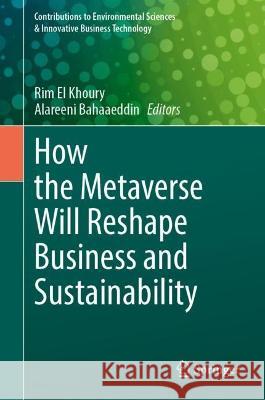How the Metaverse Will Reshape Business and Sustainability » książka
topmenu
How the Metaverse Will Reshape Business and Sustainability
ISBN-13: 9789819951253 / Angielski / Twarda / 2023
How the Metaverse Will Reshape Business and Sustainability
ISBN-13: 9789819951253 / Angielski / Twarda / 2023
cena promocyjna 338,94
(netto: 322,80 VAT: 5%)
677,88
Rabat: -50%
Najniższa cena z 30 dni: 539,74
(netto: 322,80 VAT: 5%)
Rabat: -50%
Najniższa cena z 30 dni: 539,74
Termin realizacji zamówienia:
22 dni roboczych
22 dni roboczych
Darmowa dostawa!
Zobacz inne książki w promocji: Wyprzedaż publikacji z zakresu nauk stosowanych
Sustainability is part of every aspect of our life, with climate concerns shaping the future. Thus, it is important to understand how metaverse will affect sustainability, as it is opening both challenges and opportunities for environmental sustainability. On the one side, replacing real-world interactions with 3D virtual and exchanging physical goods with digital ones are significantly less resource-intensive and more carbon-efficient. Therefore, this holds the promise of reducing the environmental pollution. On the other side, metaverse increases e-waste and energy consumption. Given this controversial impact, it is crucial for businesses and researchers to understand how to ensure that the metaverse develops sustainably. This book is popping out several questions: Do businesses understand the metaverse concept and perceive the benefits and advantages of implementing such technologies? How will the metaverse change business? Will metaverse change our working place and skills needed? How can companies get ahead of the change and mold it to their advantage? Will businesses use metaverse? Can metaverse create a more sustainable word? How can we make the metaverse better than what we have now? Is it going to affect environmental sustainability? Will it cause more severe climate problems, or would it be the solution? How can metaverse impact the achievements of SDGs?











